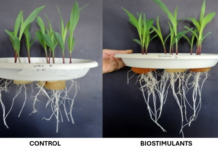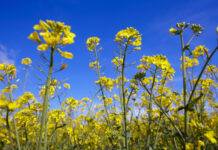We all agree that exporting fresh fruit from Africa is a supreme African interest. In particular, exports to the premium markets in Europe, which offer high prices and attractive business opportunities.
Nevertheless, today export, from most sub-Saharan countries to the EU, USA, etc., of the major agricultural crops, such as mangoes, avocados, and citrus, is limited in duration and frequently under a complete ban.
The main reason for the little export, or complete export ban, of fresh produce from Africa to the developed markets in the West is the inability of the African producers to meet the stringent phytosanitary standards that require –
produce free of fruit fly infestation, and zero chemical residues.
Why there is such an inability to meet phytosanitary requirements?
Currently, no solution or product which was used to cope with the pest problem proved itself as effective pest control for fruit flies in sub-Saharan Africa. This is in addition to the non-conformity of existing fruit flies’ control protocols with the strict requirements of advanced regulation .
This result is an annual loss of billions of dollars of potential income to Africa’s agricultural economies. Hence, it causes a lack of budgets for accelerating agricultural and economic development.
THE MUTUAL COMPLIMENTARY INTERESTS
The European interest –
To enable European residents to import and consume a variety of fruits – especially fruits that cannot be grown in Europe – at a high quality that does not risk the consumers (i.e. free of chemical residue) nor the environment (i.e. free of quarantine pests).
The African interest –
To export high added value(i.e. high quality and high price) products, as a resource of foreign currency inflow, to enable greater investments in developing its economic development, also, through the import of goods, knowledge, and services.
NON-OVERLAPPING INTERESTS
The African farmers’ interest is to invest as little as possible in pest control. An invasion of a quarantine pest from Africa to Europe will not affect them negatively.
In contrast, European farmers and authorities are highly concerned about the introduction of quarantine pests.
THE #1 REASON FOR EXPORT BAN
The ineffective control of FRUIT FLIES!
IS THERE A CONFLICT OF INTERESTS?
No. We just need “to dig in a little” to see that there is no conflict of interest. As said above, on the contrary, there is an alignment of interests.
African farmers are craving to gain effective control over fruit flies, regardless of fruit exports to Europe, and this is why –
(1) Despite the low efficiency of existing solutions, their cost is quite substantial
(2) The high fruit fly damage, typically 40% to 80% do not enable the development of any advanced and profitable fruit industry. Hence, farmers have no chance to escape poverty.
It is clear to see how much African farmers will benefit by improving fruit fly control, those – even without exporting.
It is also very clear that there is no conflict of interest!
Both, Africans and Europeans wish to gain much better control over fruit flies.
Each one of them due to its own, justified, (but different) reasons, creating a unified goal of prosperity to all.
THIS IS WHAT THE AFRICA–EUROPE COOPERATION NEED
In the case of fruit flies, to bridge the phytosanitary gap between Africa and Europe two elementary components are required and were missing to this day –
(1) An effective solution to control – at export-quality – the notorious quarantine fruit fly Bactrocera dorsalis (including under heavy rain conditions).
(2) A fruit fly control protocol that will give the European (as well as to others) the peace of mind and comfort of knowing that fruits exported are free of fruit flies and free of chemical residues.
THE PUZZLE IS DONE
Both elements EXIST, fit and are
available!
In 2020, for the first time ever, African farmers will have access to the two
missing components to bridge the ‘export gap’ between Africa and Europe.
Finally, African farmers will have the right tools, to effectively cope with the huge challenge of exporting from regions heavily infested by fruit flies.
The complete solution is A Package of two elements
First – The Biofeed FreeDome – the only (non-chemicals and non-spray) solution found to effectively control the main three fruit flies species infesting Mangoes, Avocadoes and Citrus – Bactrocera dorsalis, Ceratitis cosyra, and Ceratitis capitata.
Second – The Fruit Fly Certified Trade Zone – a fruit fly control protocol designed to be used in Africa, by African teams. The protocol is suitable for large and small-scale projects, with an easy option for scaling-up. Now, when the concept is ready to use. It’s time to implement and get the benefits (financial and market position).








